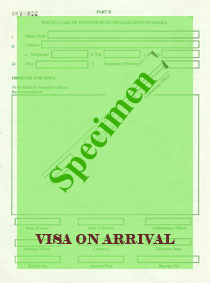Ghana Journalist Visa.
Emergency Visa On Arrival
From USD 349
30 Day Visa On Arrival Permit
From USD 289
Securing Press Accreditation: The Foundation for Your Visa
Before embarking on your visa application, obtaining press accreditation is paramount. This official endorsement from the Ghanaian government verifies your journalistic legitimacy and purpose for visiting. To secure press accreditation, initiate contact with the event organizers you plan to cover. They will typically guide you through their specific application process, which often involves submitting documents like a cover letter from your media organization, a valid press card, and a passport-size photograph. Once the event organizers grant accreditation, you’ll possess a crucial document for your visa application.
Obtaining a Ghana Journalist Visa: A Step-by-Step Guide
The Ghana Journalist Visa serves as your official authorization to engage in journalistic activities within the country. To acquire this visa, you’ll need to submit an application form, duly filled and signed. Ensure your valid passport boasts at least six months of validity beyond your intended departure date and contains sufficient blank pages for the visa stamp. Additionally, include a copy of your national ID card or passport for identification purposes.
Press accreditation shines
Attach a copy of the official press accreditation approved by the Ghanaian government. This demonstrates your journalistic purpose and validates your visit. Furthermore, a letter from your sponsoring media organization, detailing your planned activities in Ghana, strengthens your application.
Proof of your stay is crucial.
Provide a confirmed accommodation reservation (hotel, hostel, apartment) displaying your name, arrival and departure dates, and accommodation details. If your residency differs from your citizenship, include a copy of your residence permit or visa.
Additional documents may be requested depending on your specific circumstances.
A letter from your current employer confirming your journalist status can bolster your application. A valid Yellow Fever vaccination certificate is mandatory for entry into Ghana. Consider creating a list of equipment you plan to utilize while working in Ghana, as this might be required during the application process.
Transitioning to Kotoka Airport VIP Services: A Seamless Arrival
Having secured your Ghana Journalist Visa, you’re now closer to embarking on your exciting journalistic adventure. Kotoka International Airport (KIA), Ghana’s main gateway, awaits your arrival. Kotoka Airport VIP Services offers a range of services designed to ensure a smooth and stress-free landing, allowing you to focus on your journalistic pursuits from the moment you touch down.
VVIP CIP Services provide the ultimate in luxury and personalized attention.
Imagine expedited immigration clearance, a dedicated VIP lounge to unwind in, and private transfers to your accommodation, all orchestrated by a team of attentive professionals.
For a streamlined arrival experience, consider the Meet & Greet Service.
A friendly representative will welcome you upon arrival, navigate you through customs and immigration formalities, and ensure your luggage retrieval is handled efficiently.
Kotoka Airport VIP Services understand that unforeseen circumstances can arise.
Their Emergency Visa On Arrival service can be a lifesaver if your visa application encounters last-minute delays. However, it’s crucial to note that this service is subject to immigration approval upon arrival.
Planning a longer stay?
Kotoka Airport VIP Services offer a variety of visa options to suit your needs. The 60 Day Visa On Arrival Permit allows you to explore Ghana for an extended period. For frequent visits, consider the 6 Month Multiple Entry Visa, granting you the flexibility to return to Ghana throughout the validity period. If you envision a more long-term presence, the 1 Year Residence Visa might be the ideal choice.
Time is of the essence for journalists chasing stories. Kotoka Airport VIP Services offer a Private Jet Charter option, enabling you to reach your destination swiftly and efficiently. This allows you to maximize your time in Ghana, immersing yourself in the vibrant culture and capturing compelling stories.
For effortless transportation throughout your stay, consider the Chauffeur Services. Professional drivers will navigate the bustling streets of Ghana, ensuring you arrive at interview locations, press conferences, and other important events on time and in comfort.
Understanding Ghanaian Regulations for Journalists: Reporting with Responsibility
As a journalist venturing into Ghana, familiarizing yourself with the legal framework surrounding journalistic activities is essential. Ghana’s Constitution guarantees freedom of speech and the press, but it comes with the responsibility to uphold ethical reporting practices and avoid infringing upon others’ rights or inciting violence. The Criminal Code prohibits publishing false news that could cause panic or public disorder. Ensure your reports are factual and don’t contribute to such disturbances.
The Ghana Independent Media Commission (IMC) acts as the media regulatory body, setting ethical guidelines journalists must adhere to. Respect individual privacy and avoid publishing private information without consent. The Ghana Data Protection Act regulates the collection, use, and disclosure of personal information.
National security is paramount. Refrain from publishing information that could endanger national security or compromise ongoing investigations. The National Security Act governs the handling of classified information. Copyright laws exist to protect intellectual property. Always obtain permission before using someone else’s work.
Social media has become an integral part of journalism. Be mindful of your social media posts. Avoid inflammatory or offensive comments that could damage your credibility or your media organization’s reputation.
Challenges Faced by Foreign Journalists in Ghana: Building Bridges for Success
While Ghana offers a wealth of journalistic opportunities, foreign journalists may encounter some challenges. Limited access to sources and information can pose an obstacle, especially if unfamiliar with Ghanaian culture and language. Consider collaborating with local journalists or translators to bridge this gap.
The language barrier can be another hurdle. Although English is the official language, a multitude of local languages exist. Focusing on English-speaking regions or working with a translator can help overcome this challenge.
Cultural differences are inevitable. Understanding customs, traditions, and practices is crucial for accurate and sensitive reporting. Conduct thorough research beforehand and build relationships with locals to gain deeper insights.
Safety concerns might arise when reporting on sensitive topics. Consider traveling with a local fixer or guide who can navigate potentially risky situations. Avoid areas experiencing unrest and prioritize your safety throughout your stay.
Extending Your Ghana Journalist Visa (Optional): Maximizing Your Time
If your journalistic endeavors require a longer stay, extending your Ghana Journalist Visa is an option. The application process involves submitting a completed extension form, your current passport, two passport-sized photographs, your press accreditation card, and a cover letter from your media organization requesting the extension and outlining the reason. A copy of your return flight ticket demonstrates your intended departure date. Submit the application and required documents to the Ghana Immigration Service (in person or online). There’s an associated fee, and processing times can vary. Follow up with the immigration service to ensure a smooth extension process.
Making the Most of Your Time in Ghana: Unveiling Untold Stories
Ghana presents a treasure trove of journalistic possibilities. Building relationships with local journalists, media outlets, and sources is invaluable. This fosters trust, opens doors to exclusive stories, and provides valuable local perspectives.
Immerse yourself in the culture by attending festivals, visiting cultural sites, and exploring different regions. This firsthand experience enriches your understanding of Ghana and adds depth to your reporting.
Technology can be your ally. Utilize social media platforms to engage with audiences, conduct remote interviews, and enhance your research capabilities.
Prioritize safety by traveling with a local fixer or guide and avoiding areas of unrest. Your well-being allows you to focus on your work and produce impactful journalism.
Report on under-reported issues that might otherwise go unnoticed. Social and economic inequalities, environmental challenges, and human rights abuses are just some examples of stories that deserve a platform.
Taking care of yourself is paramount. Eat healthy, exercise regularly, and seek support when needed. A journalist in peak physical and mental condition is best equipped to produce exceptional work.
Conclusion: Unforgettable Journalism Awaits in Ghana
Obtaining a Ghana Journalist Visa and navigating the legal framework may seem daunting at first, but with careful planning and this comprehensive guide, you’re well on your way. Remember, the rewards are substantial. Ghana offers a vibrant media landscape, a rich cultural tapestry, and a plethora of stories waiting to be uncovered. Embrace the challenges, build relationships, and report with integrity. Your journalistic journey in Ghana promises to be an unforgettable and enriching experience.

Get in Touch
Prefer Booking by Phone?
Call Us Now!
Get in Touch
Frequently
Asked Questions!
I'm a foreign journalist. Do I need a special visa to work in Ghana?
What's the first step to obtaining a Ghana Journalist Visa?
What documents do I need to apply for a Ghana Journalist Visa?
- Completed and signed Ghana Journalist Visa application form
- Valid passport with at least six months validity beyond your intended departure date and blank pages for the visa stamp
- Copy of your national ID card or passport
- Copy of your press accreditation approved by the Ghanaian government
- Letter from your sponsoring media organization outlining your planned activities in Ghana
- Proof of confirmed accommodation reservation
- (Optional) Letter from your current employer confirming your journalist status
- Yellow Fever vaccination certificate
- (Optional) List of equipment you plan to use while working in Ghana
What are some challenges foreign journalists might face in Ghana?
Limited access: Building relationships with local journalists or translators can help bridge this gap.
Language barrier: Focusing on English-speaking regions or working with a translator can be beneficial.
Cultural differences: Thorough research and building relationships with locals are key to accurate and sensitive reporting.
Safety concerns: Consider traveling with a local fixer or guide, especially when reporting on sensitive topics.
Can I extend my Ghana Journalist Visa if needed?
How can I make the most of my time in Ghana as a journalist?
Build relationships: Connect with local journalists, media outlets, and sources.
Immerse yourself in the culture: Attend festivals, visit cultural sites, and explore different regions.
Utilize technology: Leverage social media for audience engagement and research.
Report on under-reported issues: Give a voice to stories that might otherwise go unnoticed.
Prioritize your safety: Travel with a local fixer or guide when needed.
What are some resources available for foreign journalists in Ghana?
- Ghana Journalists Association (GJA)
- Ghana News Agency (GNA)
- Ghana Broadcasting Corporation (GBC)
- Media Foundation for West Africa (MFWA)
- Ghana Business News
- Fixer and Local Guide Services
Is it safe to travel to Ghana as a journalist?
What are some of the legal considerations for journalists working in Ghana?
- Respect freedom of speech and the press, but avoid violating others’ rights or inciting violence.
- Refrain from publishing false news that could cause panic or public disorder.
- Adhere to the ethical guidelines set by the Ghana Independent Media Commission (IMC).
- Respect individual privacy and copyright laws.
- Avoid compromising national security.
How can Kotoka Airport VIP Services assist journalists traveling to Ghana?

Prefer Booking by Phone?
Call Us Now!
